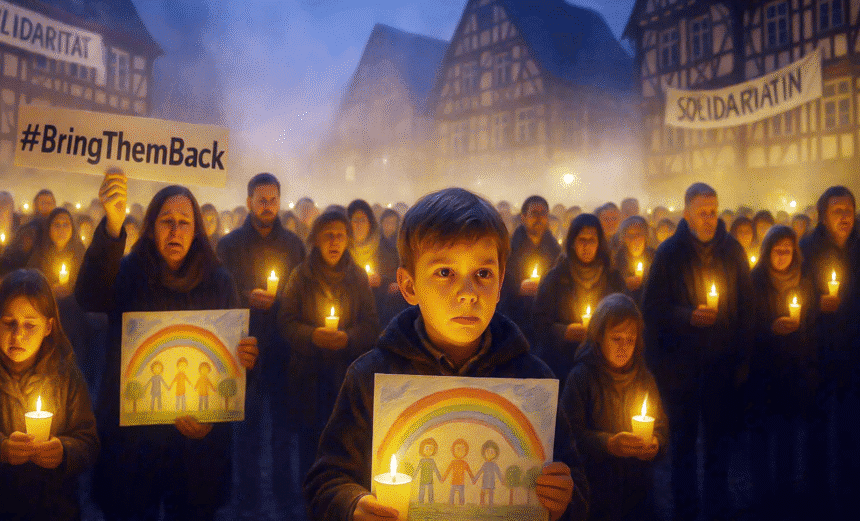Germany is witnessing a powerful digital uprising after the recent deportation of a Yazidi family from Lower Saxony triggered nationwide outrage and calls for immediate action. The family, consisting of a father, mother, and three young children, had been living peacefully in the small town of Stade for nearly seven years. Despite their deep integration into German society, including the children attending local schools, the father passing the B1 German language exam, and both parents being active in the community, the family was forcibly deported to the Kurdistan region of Iraq on July 23, 2025, in a nighttime operation. Their sudden removal has shocked neighbors, classmates, and human rights groups, who argue that sending Yazidis back to a still-unstable Iraq not only exposes them to danger but also goes against Germany’s values and historical responsibilities.
Within hours of the deportation, concerned residents, teachers, and friends launched a petition on Change.org titled “Bring Back the Yazidi Family, Germany Can Do Better.” What started as a local initiative quickly turned into a national movement. In just two days, the petition gathered over 250,000 signatures, and as of August 5, that number has surged past 700,000, making it one of the fastest-growing online petitions in recent German history. Under the hashtag #BringThemBack, thousands of Germans, including politicians, journalists, and celebrities, have voiced support for the family and urged authorities to allow them to return. Social media has been flooded with stories about the family’s positive contributions, photos of school events, and heartfelt videos made by classmates pleading for their return.
The deportation has also reignited discussions about the treatment of Yazidis, a persecuted religious minority primarily from northern Iraq. In 2014, Yazidis faced mass killings, abductions, and genocide at the hands of ISIS. Germany has long been considered a safe haven for Yazidis, with over 100,000 settling in the country since the peak of the refugee crisis. Activists and legal experts argue that deporting Yazidis, especially those who have rebuilt their lives in Germany, is not only inhumane but contradicts Germany’s prior commitments to protect vulnerable groups. “Germany promised these people safety,” said Berlin-based human rights lawyer Diana Altman. “To send them back to an unsafe homeland is a betrayal of that promise.”
The political fallout has been swift. Green Party co-leader Ricarda Lang called the deportation a “moral failure,” stating that well-integrated families should not be punished by a rigid system. Public pressure is mounting on Interior Minister Nancy Faeser to intervene. While speaking to ZDF, Faeser acknowledged the public outcry and confirmed that the Federal Ministry of the Interior is reviewing the deportation decision. “When hundreds of thousands of citizens raise their voice, it’s our responsibility to listen,” she said, hinting that humanitarian grounds for return are being seriously considered.
Legal experts suggest that there is a precedent for such reversals. Under exceptional humanitarian circumstances, deported individuals can be granted re-entry and residency. If the Ministry chooses to act, this Yazidi family could become a landmark case, potentially influencing how similar deportation decisions are handled in the future. Lower Saxony’s state government has also announced an independent inquiry to examine whether legal errors or procedural violations occurred.
Meanwhile, the campaign continues to gain momentum. Several schools in Germany are organizing solidarity events, while local councils are passing symbolic resolutions demanding the family’s return. Social media continues to play a pivotal role, with powerful visuals and testimonials driving awareness and empathy. From Stuttgart to Hamburg, the message is clear: this is not just about one family, but about what kind of country Germany wants to be.
As the government considers its next move, one thing is certain, Germany’s people have spoken, loudly and clearly. The case has turned into a test of national conscience, and the hope of hundreds of thousands now rests on whether compassion can override bureaucracy.
















